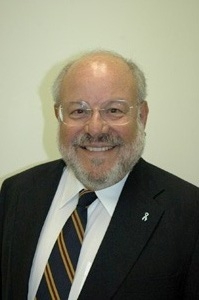Gunter points to what happened to a report which the NRC commissioned the DOE's Pacific Northwest National Laboratory to make. "The federal laboratory was contracted by the NRC to develop the criteria and guidance document to address and close numerous 'knowledge gaps' in the license renewal safety review process to provide the 'reasonable assurance' that the reactors could be operated reliably and safely into the license extension period," relates Gunter. The 2017 report raised many significant issues regarding extending the operating licenses of nuclear plants.
The report is titled "Criteria and Planning Guidance for Ex-Plant Harvesting to Support Subsequent License Renewal."
It "was publicly posted by Pacific Northwest National Laboratory to its website in December 2017," relates Gunter, "as well as to the websites of the Department of Energy Office of Scientific and Technical Information and the International Atomic Energy Commission's International Nuclear Information System."
But then Gunter attended a public meeting at the NRC's headquarters in Rockville, Maryland on September 26, 2018 on operating license extensions "and I started asking questions citing the report" of the year before. The NRC officials there "were quite surprised."
And the NRC "wiped all three websites of the report."
The NRC was to repost the report, but it was then "scrubbed clean of dozens of references to safety-critical knowledge 'gaps' pertaining to many known age-related degradation mechanisms described in the original published report," says Gunter. "The NRC revision also scrubbed Pacific Northwest National Laboratory findings and recommendations to 'require' the harvesting of realistic and representative aged materials from decommissioning nuclear power stationsbase metals, weld materials, electric cables, insulation and jacketing, reactor internals and safety-related concrete structures like the containment and spent fuel poolfor laboratory analyses of age degradation. The laboratory analyses are intended to provide 'reasonable assurance' of the license extension safety review process for the projected extension period."
However, Beyond Nuclear had downloaded and saved a copy of the original report which you can view at: Click Here
And you can view what Gunter terms the "sanitized version" of the report which has the same title but is dated March 2019. It's at Click Here
The omissions start with what is headed "Abstract" in the 2017 report. The "Abstract" states: "As U.S. nuclear power plants look to subsequent license renewal (SLR) to operate for a 20-year period beyond 60 years, the U.S. Nuclear Regulatory Commission and the industry will be addressing technical issues around the capability of long-lived passive components to meet their functionality objectives. A key challenge will be to better understand likely materials degradation mechanisms in these components and their impacts on component functionality and safety margins. Research addressing many of the remaining technical gaps in these areas for SLR may greatly benefit from materials sampled from plants (decommissioned or operating). Because of the cost and inefficiency of piecemeal sampling, there is a need for a strategic and systematic approach to sampling materials from structures, systems and components in both operating and decommissioned plants."
But in the 2019 version of the report, this "Abstract," among other material, is gone.
Meanwhile, says Gunter, it is the practice of the nuclear industry as part of decommissioning nuclear power plants "to knock these plants down and bury them as quickly as they can" and "ignore having critical post-mortem autopsies." Components of the plants are not studied to determine the extent of wear including "how radiation affects concrete and impacts on what had been inaccessible areas of the plants." Not being done are analyses of the impacts of embrittlement of metals notably on the reactor pressure vessel caused by radiation exposure, as well as "extreme temperatures and vibration." The industry resistance, he said, is based on the cost of such examinations. Further, there "are 600 miles of electrical cable in a typical nuclear power plant" which energize control monitors and other components. Cabling and its "insulation and jacketing" are also not being inspected but "buried with the plant." Overall, the "real world effects of aging" are not being gauged, says Gunter. And the original Pacific Northwest National Laboratory report, he emphasizes, would "require" this be done.
The first nuclear power plants given permission by the NRC to operate for 60 years were, in 1999, the two Calvert Cliffs plants located on the western shore of Chesapeake Bay near Lusby, Maryland 45 miles southeast of Washington D.C. Most U.S. nuclear power plants are now licensed to operate for 60 years.
The first U.S. nuclear power plants to have their operating licenses extended to 80 years were, in 2019, Florida Power & Light's Turkey Point Units 3 and 4 near Homestead, Florida, 25 miles south of Miami.
The Associated Press conducted "a yearlong investigation of aging issues at the nation's nuclear power plants" and, in an article in June 2011 by Jeff Donn, reported: "Regulators contend that the 40-year limit was chosen for economic reasons and to satisfy safety concerns, not for safety issues. They contend that a nuclear plant has no technical limit on its life. But an AP review of historical records, along with interview with engineer who helped develop nuclear power, shows just the opposite: Reactors were made to last only 40 years. Period." Click Here
Further, the piece"Aging Nukes: NRC and industry rewrite nuke history"said "the AP found that the relicensing process often lacks fully independent safety reviews. Records show that paperwork of the U.S. Nuclear Regulatory Commission sometimes matches word-for-word the language used in a plant operator's application."
Getting operating license extensions "is a lucrative deal for operators," said AP.
(Note: You can view every article as one long page if you sign up as an Advocate Member, or higher).





